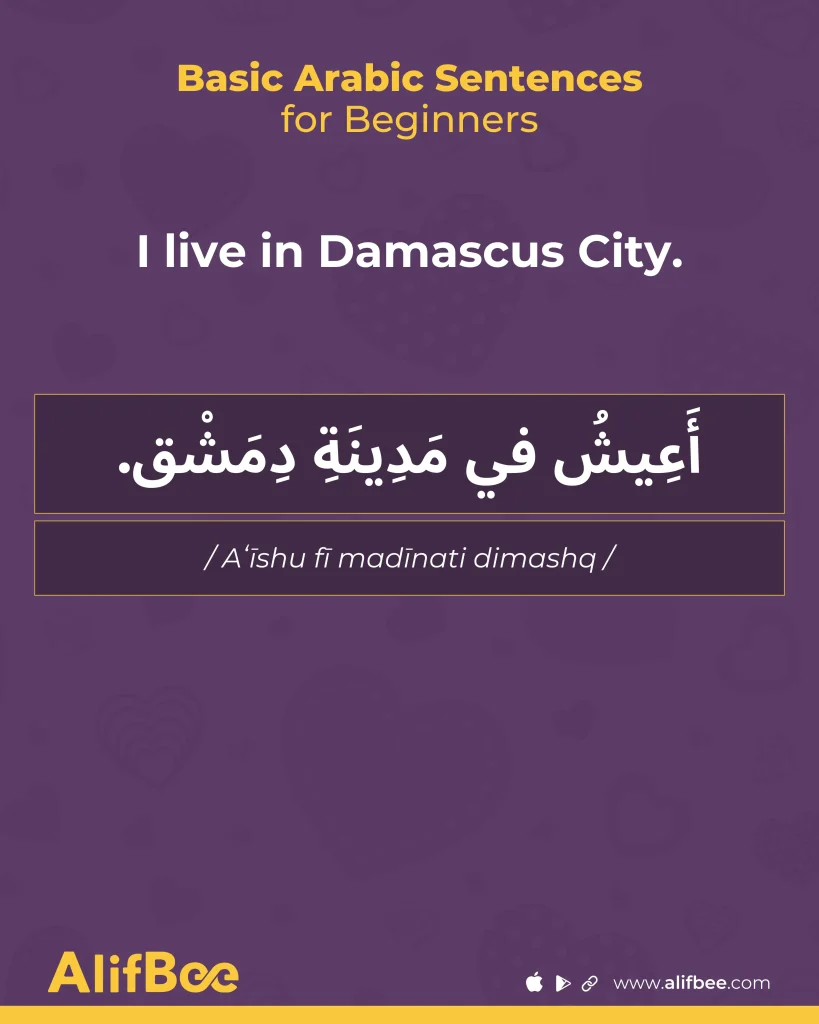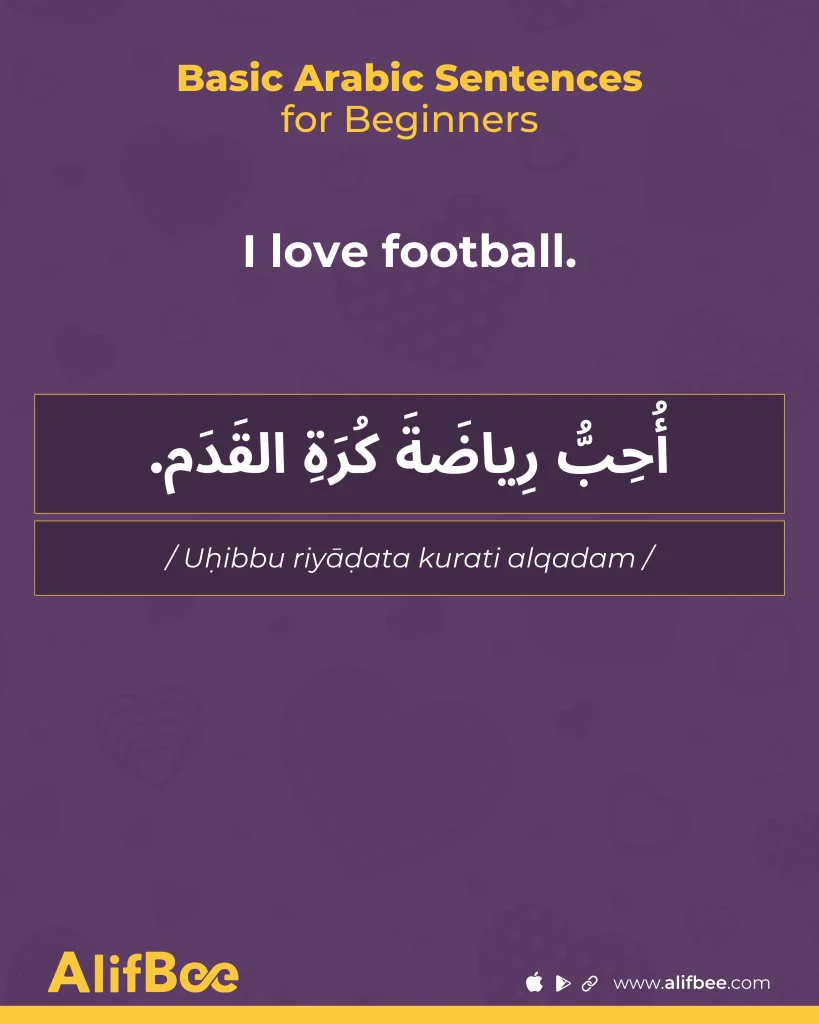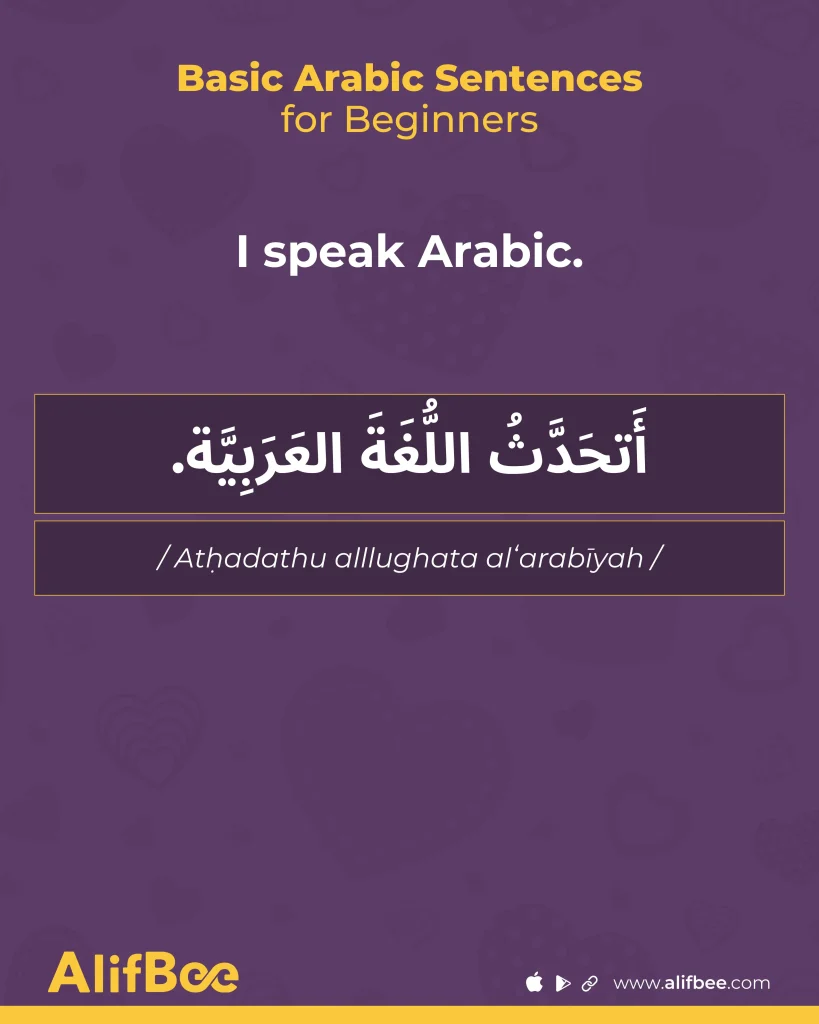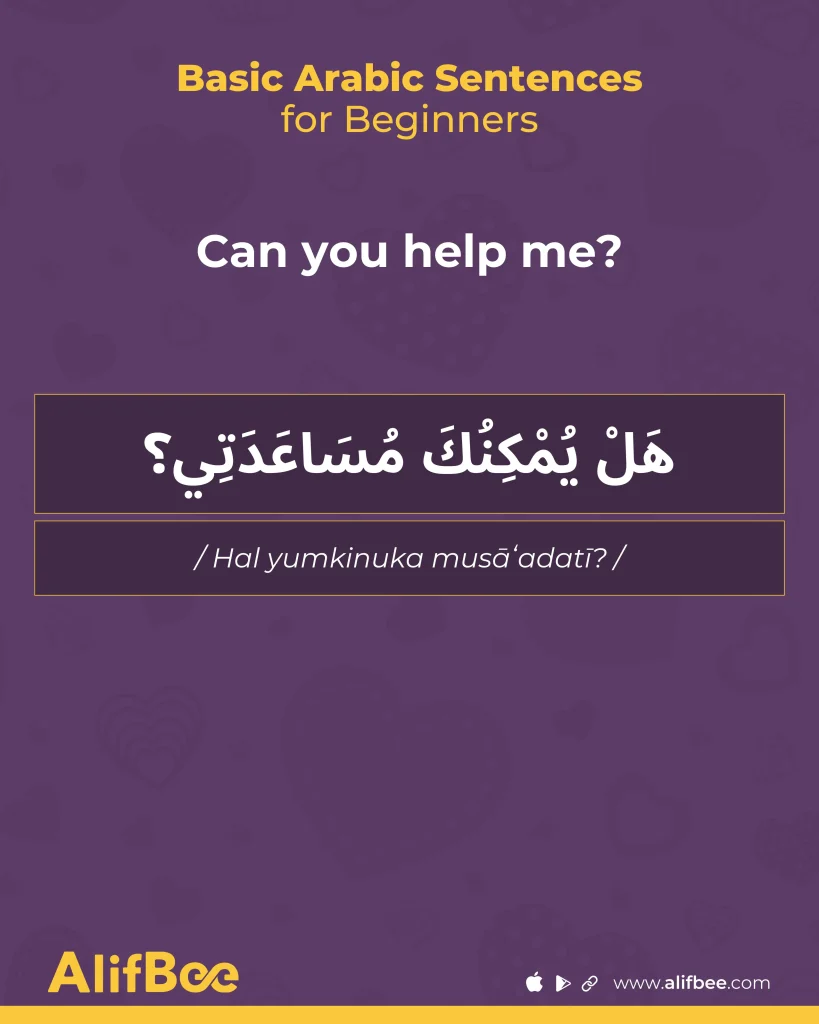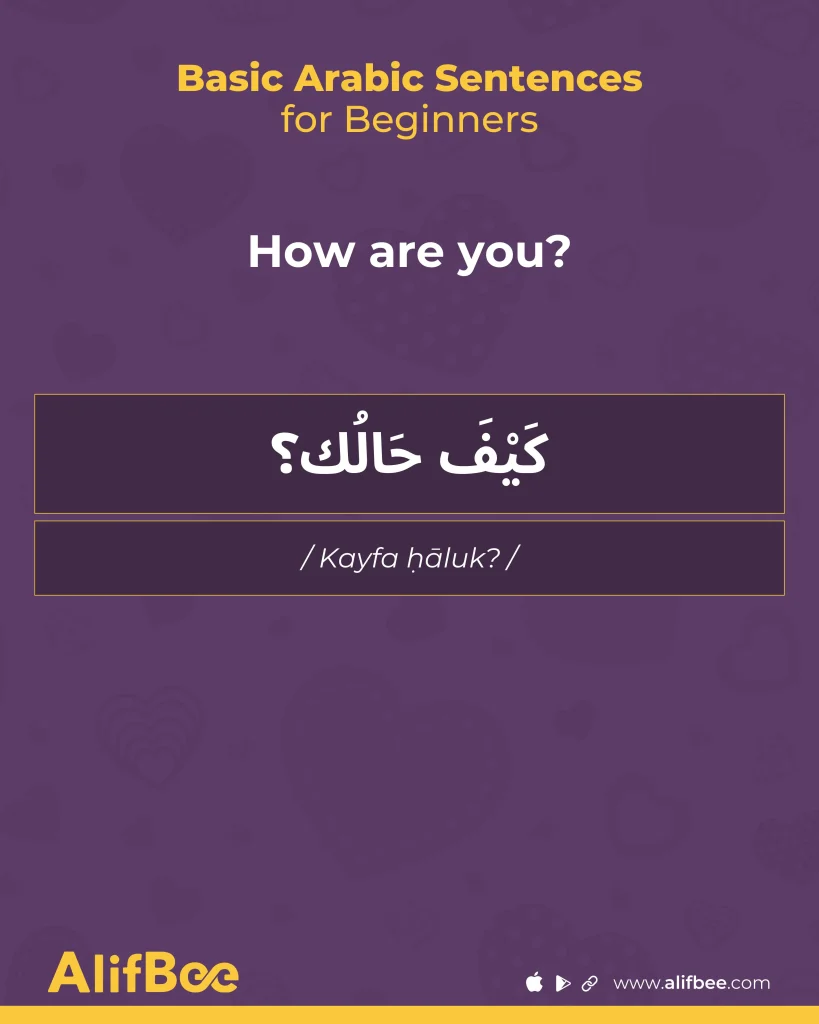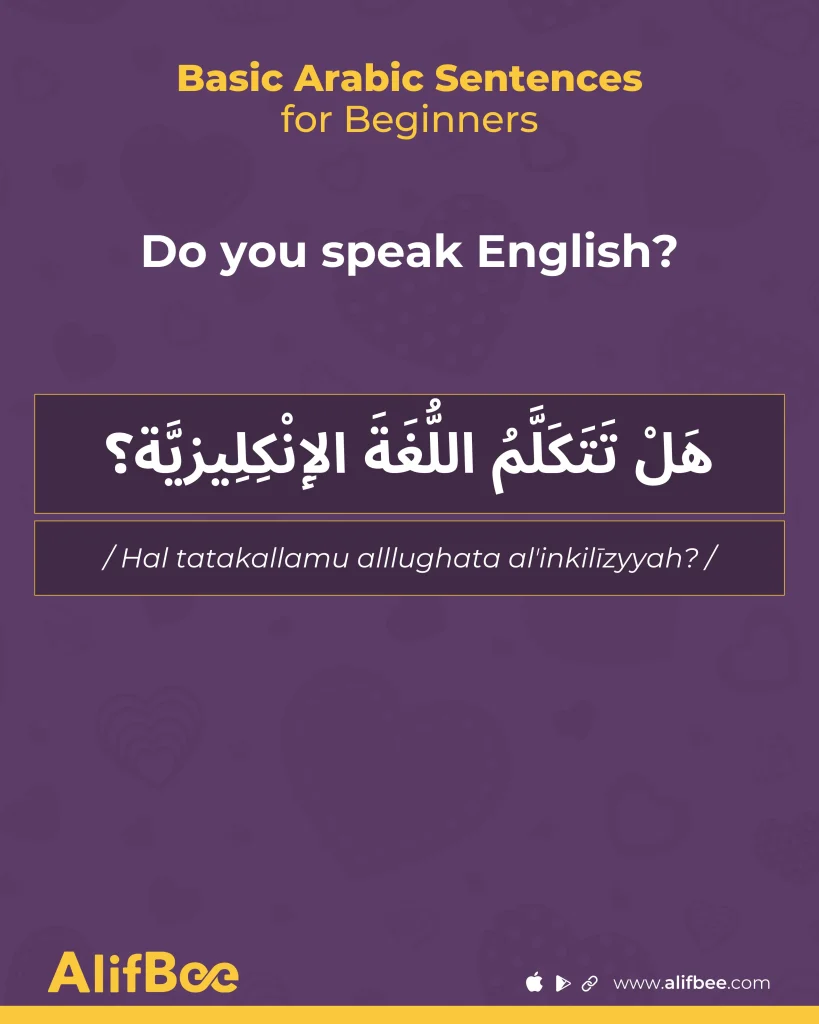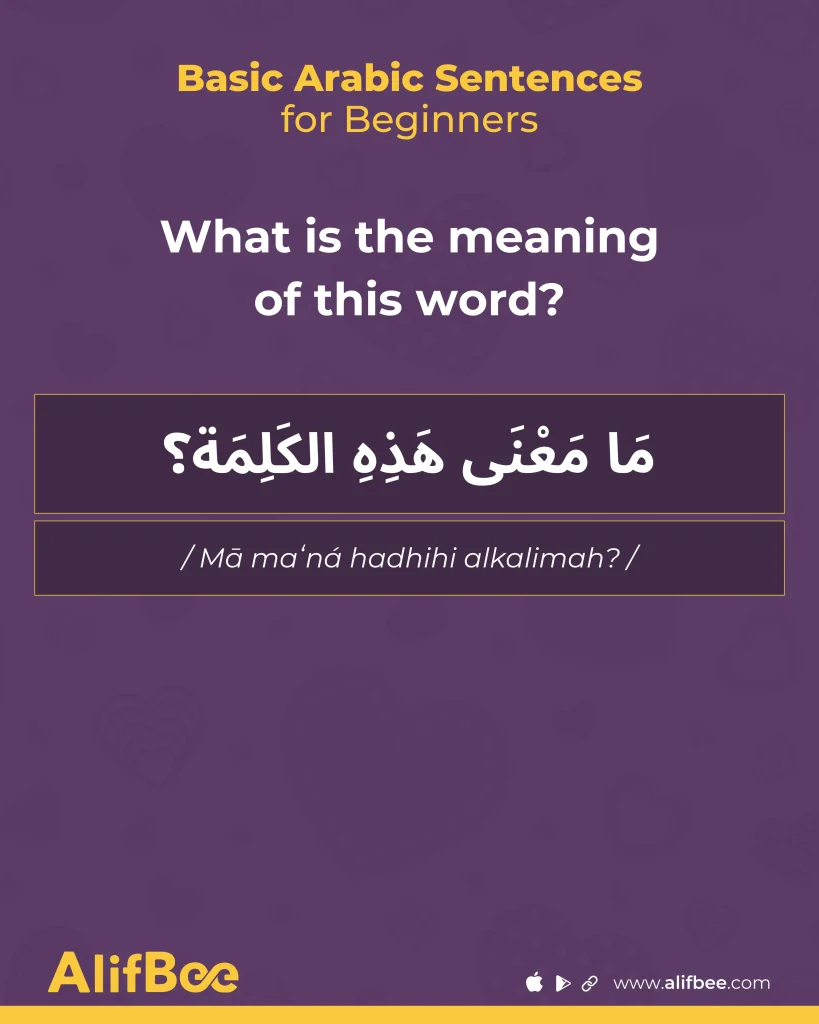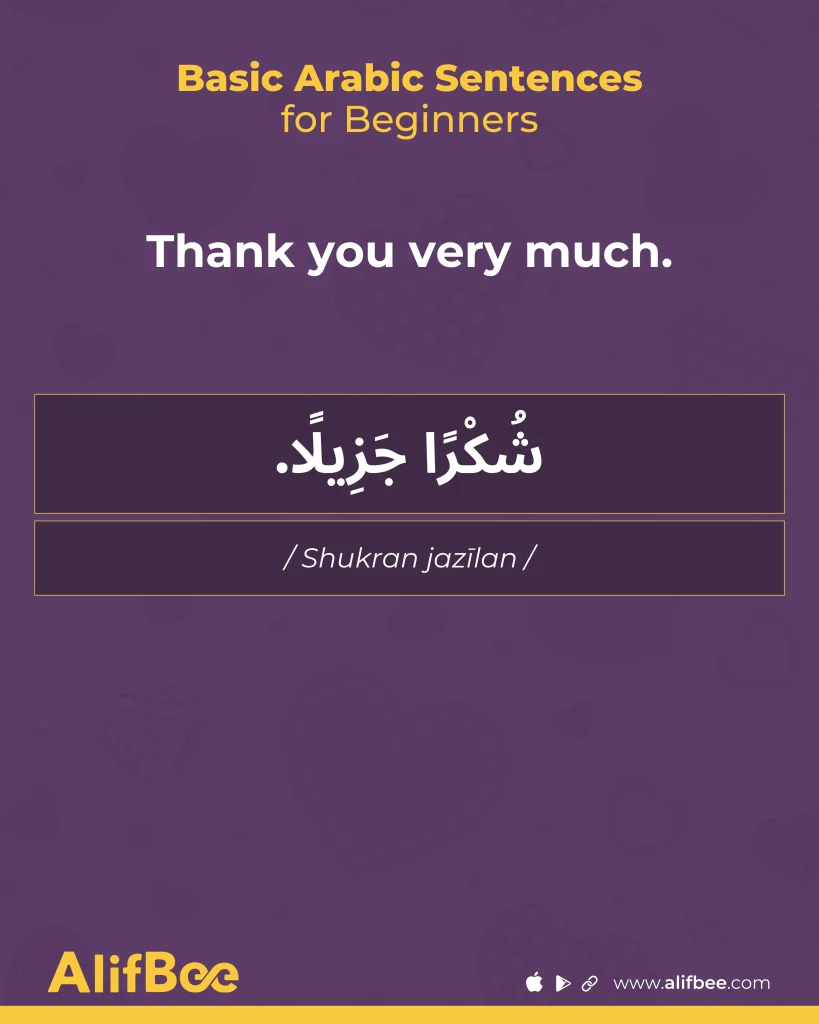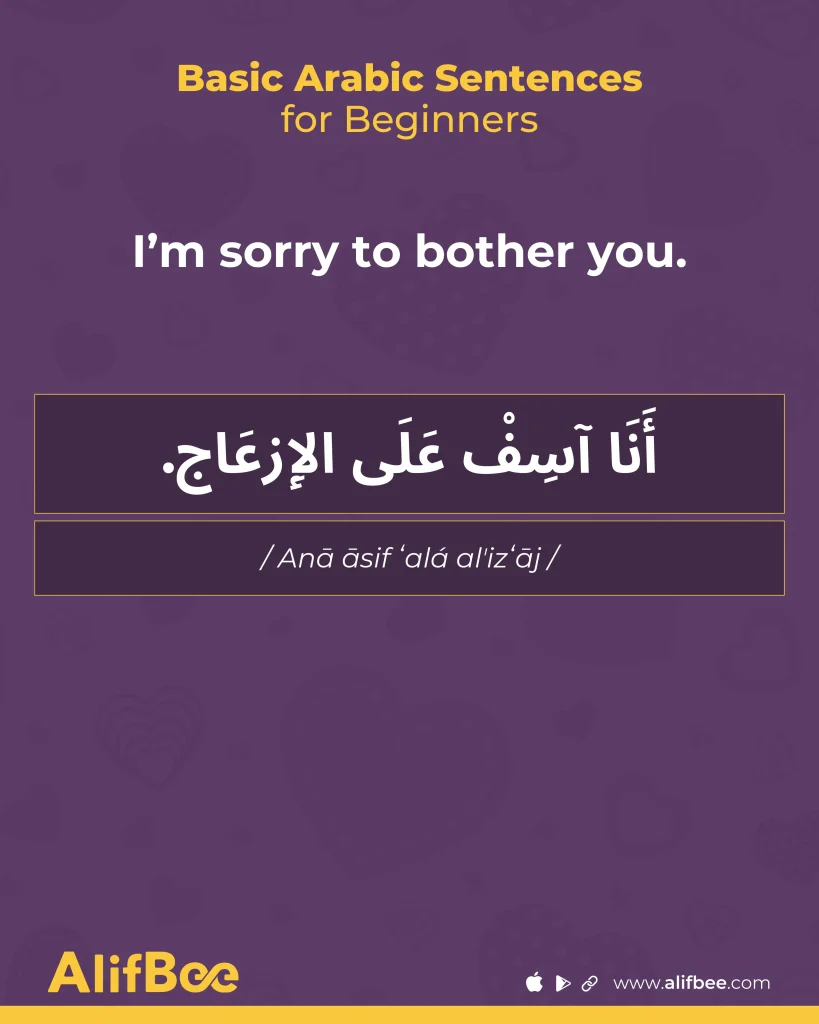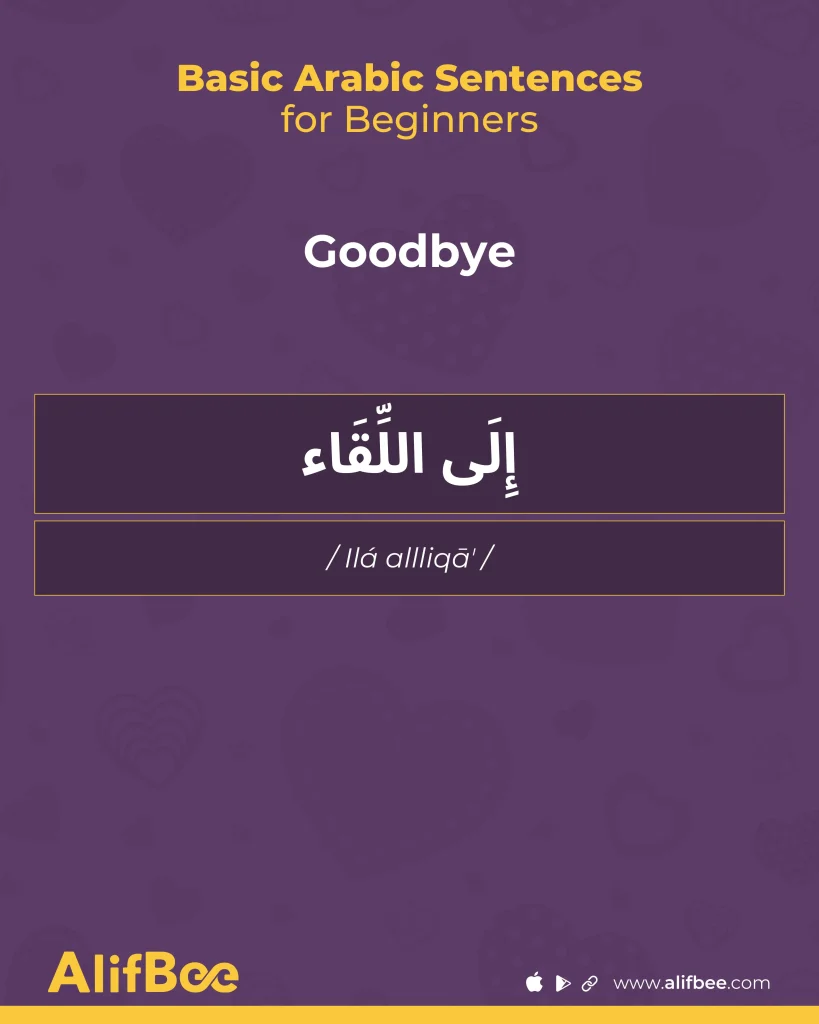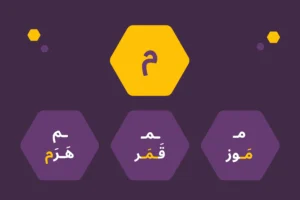If you are just starting to learn Arabic, the best way to begin is with a few sentences you can actually use in real life. You don’t need to know hundreds of words or complicated grammar rules. With just a small set of basic Arabic sentences, you can greet people, introduce yourself, ask simple questions, and be polite in everyday situations.
In this article, you will learn 10 basic Arabic sentences for beginners. We will show you how each one is written, how to pronounce it, what it means, and when to use it. These sentences are easy to remember and will give you the confidence to start speaking Arabic right away even if this is your very first lesson.
Your Arabic Takeaway
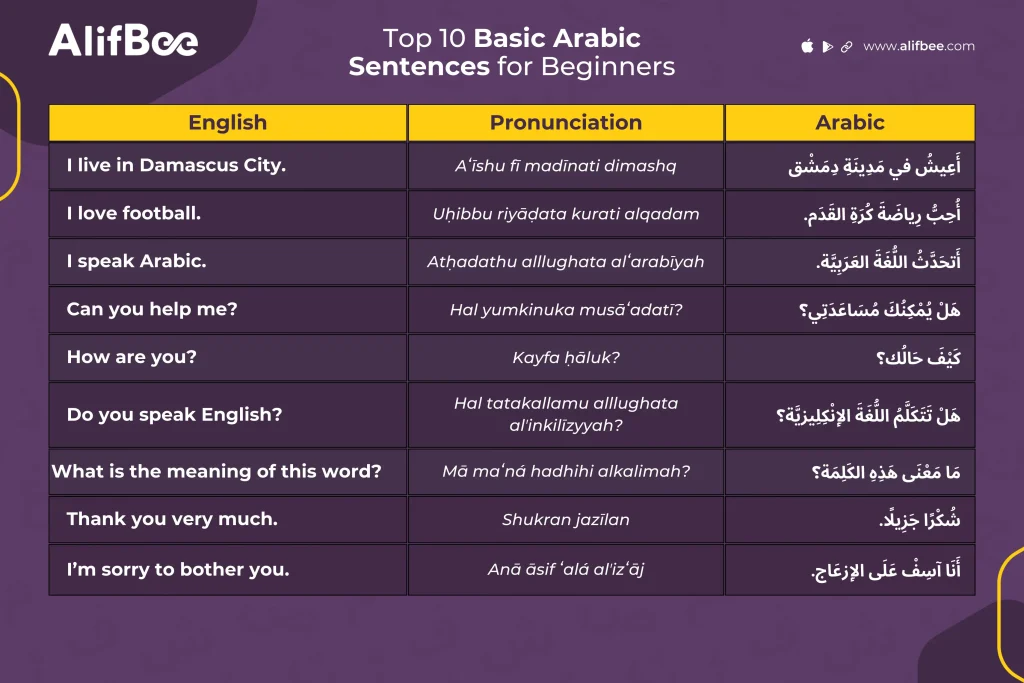
Why Learn Basic Arabic Sentences?
When beginning to learn Arabic, the first thing to begin with is real words and sentences that will actually be used. Endless vocabulary lists and textbooks on grammar come afterwards, but beginning with something that actually works in daily life is most beneficial.
These basic Arabic sentences are the ones you’ll hear and use all the time. They let you:
- Introduce yourself to others and share simple facts such as where you’re from or something you like.
- Ask simple questions that maintain the flow of conversation.
- Show politeness by saying “thank you,” “sorry,” or “goodbye.”
With these sentences alone, you already know how to communicate to people in Arabic. Those already allow you to get started right off the bat, then gradually add more vocabulary and grammar in the background.
Basic Arabic Sentences to Talk about Yourself
When meeting someone new, you’ll often introduce yourself and share a little bit about your life. Here are three easy Arabic sentences you can use immediately.
English
Transliteration
Arabic
I live in Damascus City.
Aʻīshu fī madīnati dimashq
أَعِيشُ في مَدِينَةِ دِمَشْق
I love (the sport of) football.
Uḥibbu riyāḍata kurati alqadam
أُحِبُّ رِياضَةَ كُرَةِ القَدَم
I speak the Arabic language.
Atḥadathu alllughata alʻarabīyah
أَتحَدَّثُ اللُّغَةَ العَرَبِيَّة
أَعِيشُ في مَدِينَةِ دِمَشْق
I live in Damascus City.
Aʻīshu fī madīnati dimashq
This is one of the easiest ways to tell someone where you live. The word أعيش means “I live.” You can change Damascus for any other city:
- أعيش في القاهرة (I live in Cairo).
- أعيش في دبي (I live in Dubai).
The structure is simple: verb + preposition + place. Once you know this, you can say where you live in any city.
أُحِبُّ رِياضَةَ كُرَةِ القَدَم
I love football.
Uḥibbu riyāḍata kurati alqadam
The verb أحب means “I love.” You’ll use this a lot. Just change “football” to another activity or hobby:
- أحب السباحة (I love swimming).
- أحب القراءة (I love reading).
It’s a quick way to talk about what you enjoy, and it helps start friendly conversations.
أَتحَدَّثُ اللُّغَةَ العَرَبِيَّة
I speak Arabic.
Atḥadathu alllughata alʻarabīyah
This is a confident way to show which language you speak. The verb أتحدث means “I speak.” You can replace “Arabic” with any language:
- أتحدث اللغة الإنجليزية (I speak English).
- أتحدث اللغة الفرنسية (I speak French).
This is especially useful if you’re abroad or meeting new people who don’t know your background.
Useful Arabic Questions for Everyday Situations
Questions are the key to keeping conversations going. Here are four common Arabic phrases you’ll hear and use often.
English
Transliteration
Arabic
Can you help me?
Hal yumkinuka musāʻadatī?
هَلْ يُمْكِنُكَ مُسَاعَدَتِي؟
How are you?
Kayfa ḥāluk?
كَيْفَ حَالُك؟
Do you speak English?
Hal tatakallamu alllughata alʼinkilīzyyah?
هَلْ تَتَكَلَّمُ اللُّغَةَ الإِنْكِلِيزيَّة؟
What is the meaning of this word?
Mā maʻná hadhihi alkalimah?
مَا مَعْنَى هَذِهِ الكَلِمَة؟
هَلْ يُمْكِنُكَ مُسَاعَدَتِي؟
Can you help me?
Hal yumkinuka musāʻadatī?
This is a very practical phrase, especially useful if you’re traveling or still new to Arabic. It’s polite and simple, and people will understand right away that you’re asking for assistance. If you use it, the other person might respond with:
- بالتأكيد (Of course).
- آسف، لا أستطيع (Sorry, I can’t).
كَيْفَ حَالُك؟
How are you?
Kayfa ḥāluk?
This phrase is used to ask about someone’s wellbeing. It literally means “How is your condition/state?” and is a polite way to start a conversation.
Common replies include:
- الحمد لله – أنا بخير (Alḥamdu lillāh – I’m fine).
- لست بخير (I’m not well).
هَلْ تَتَكَلَّمُ اللُّغَةَ الإِنْكِلِيزيَّة؟
Do you speak English?
Hal tatakallamu alllughata alʼinkilīzyyah?
This is useful when you’re not sure if someone understands English. If they ask you this phrase, you can answer honestly:
- نعم، أتكلم الإنجليزية (Yes, I speak English).
● لا، لا أتكلم الإنجليزية (No, I don’t speak English).
مَا مَعْنَى هَذِهِ الكَلِمَة؟
What is the meaning of this word?
Mā maʻná hadhihi alkalimah?
This is an essential phrase for learners. You can use it any time you see or hear a new word whether in a book, on a sign, or in conversation. It’s a simple and effective way to expand your vocabulary quickly and naturally.
For more details on asking questions, check out How to Ask Questions in Arabic.
Common Polite Expressions in Arabic
Politeness is central in Arabic culture. These basic Arabic phrases will make your conversations warmer and more natural.
English
Transliteration
Arabic
Thank you very much.
Shukran jazīlan
شُكْرًا جَزِيلًا
I am sorry to bother you.
Anā āsif ʻalá alʼizʻāj
أَنَا آسِفٌ عَلَى الإِزعَاج
Goodbye.
Ilá allliqāʼ
إِلَى اللِّقَاء
شُكْرًا جَزِيلًا
Thank you very much.
Shukran jazīlan
This phrase is used to say “thank you” in a stronger, more polite way. The word شكرًا by itself means “thanks,” and جزيلًا adds the meaning “very much.” You’ll also hear shorter or more casual forms, like:
- شكرًا (Thanks).
- ألف شكر (A thousand thanks).
See more expressions here: Ways to Say Thank You in Arabic.
أَنَا آسِفْ عَلَى الإِزعَاج
I’m sorry to bother you.
Anā āsif ʻalá alʼizʻāj
This sentence is useful when you want to say sorry for disturbing someone. The word آسف means “sorry.” You can also change the last part to match the situation:
- آسف على التأخير (Sorry for being late).
- آسف على الخطأ (Sorry for the mistake).
إِلَى اللِّقَاء
Goodbye.
Ilá allliqāʼ
This phrase is a standard way to say farewell. It literally means “until the meeting” like saying “see you next time.” A few other common options are:
- مع السلامة (Go in peace).
- إلى اللقاء قريبًا (See you soon).
For more options, read How to Say Goodbye in Arabic.
Tips for Memorizing and Practicing Arabic Sentences
It’s easy enough to see a new Arabic sentence and understand it at the moment. The real test is whether you can actually bring it back later, in a real conversation. That’s where practice comes in.
Below are some practical ways that can help you keep those sentences in your memory and start using them naturally.
1. Write Them Down in Your Own Words
Reading alone isn’t enough. Get yourself a notebook and write the sentences out by hand. Writing gives your brain an extra push to hold onto the words. Better yet, change the examples so they actually fit your life.
- Instead of “I live in Damascus,” write: أعيش في القاهرة (I live in Cairo).
- Instead of “I love football,” write: أحب القراءة (I love reading).
Now it’s not just a phrase from a book, it’s your phrase, and that makes it stick.
2. Practice Out Loud Every Day
Arabic is a spoken language, and your mouth needs training just like your mind does. Don’t just read silently. Say the sentences out loud. Start slowly, then build up to a natural speed. The more often you hear your own voice speaking Arabic, the less strange it will feel when you talk to others.
3. Use Them in Real Conversations
Don’t just keep the sentences in your notebook, try them with people whenever you get the chance. For example, you might say كيف حالك؟ (How are you?) when meeting someone, or use شكرًا جزيلاً (Thank you very much) to show appreciation. Even using one or two sentences in real life gives you confidence and helps the phrases stick in your memory.
4. Link New Sentences Together
Don’t just memorize one sentence by itself. Try connecting two or more to make a small conversation. For example:
A: كيف حالك؟ (How are you?)
B: الحمد لله، أنا بخير. (Thanks to God, I’m fine.)
This converts memorization into actual dialogue practice.
5. Pay Attention and Observe Them Around You
If you watch Arabic programs, listen to Arabic music, or listen to native speakers, pay attention when these expressions are employed. Familiarity helps to remember. Before long, you will find that you can hear familiar expressions wherever you are.
6. Build with Flashcards or Apps
Flashcards are ideal for a rapid refresher. Put the Arabic sentence and English translation on each one. Or get a language program that lets you practice saying the Arabic sentences and test yourself. Just 5 minutes a day will make a huge difference.
7. Consistent, but Not Perfect
Do not worry about mistakes. Even a correct sentence is a step in the right direction in a natural conversation. Regular practice, even for a couple of minutes, is more valuable than an attempt to learn everything at a stretch.
For more great ideas, check out 10 Tips from Polyglots, where experienced language learners share how they make new languages stick.
Final word
You just learned 10 beginner Arabic sentences that deal with self-introductions, polite remarks, and daily questions. These Arabic basic phrases are building blocks to meaningful communication and cultural understanding.
Remember: fluency is not learned from learning all the grammatical rules but when you practice informal Arabic sentences in daily life.
Practice more, observe how these expressions come into play in speech, and do not fear to err. Each effort is a step toward confidence.
If you are interested in a systematic and recreational way of proceeding, then do join the AlifBee App. It will lead you into Arabic words, pronunciation, and speaking step by step.
Start with little things, remain consistent, and you will naturally converse in Arabic.

